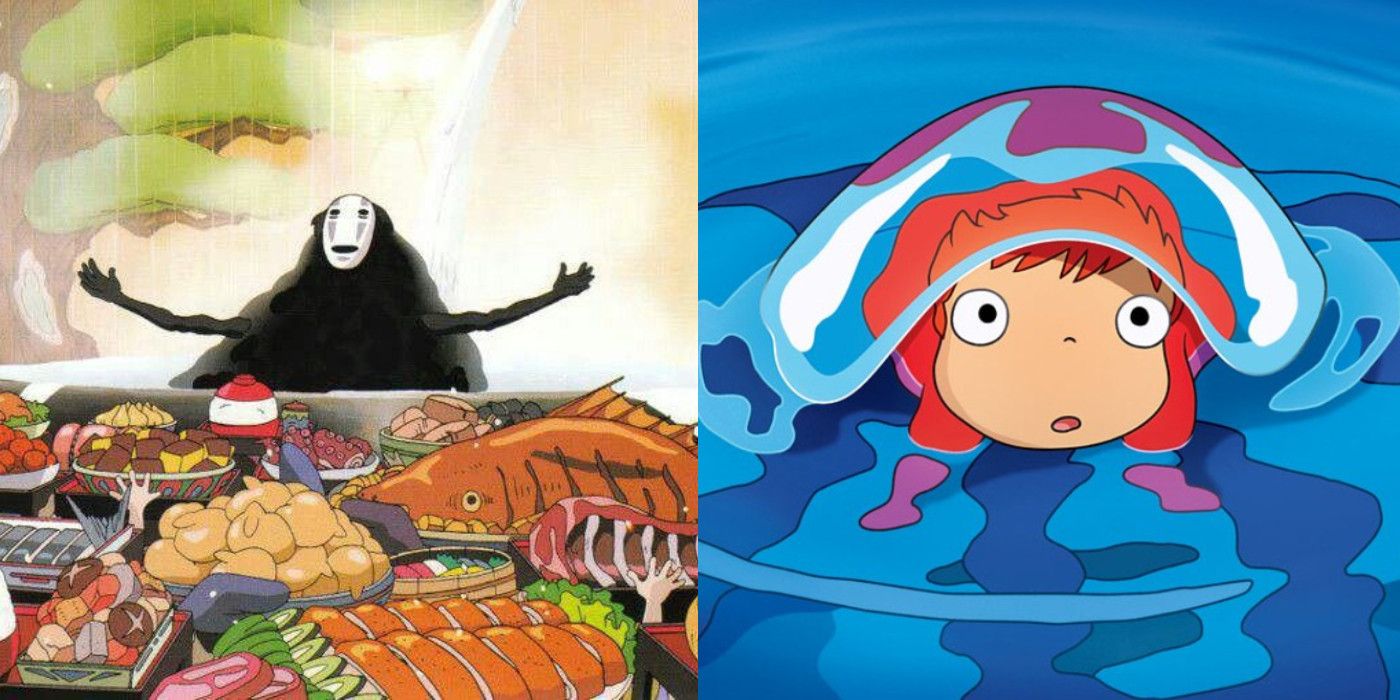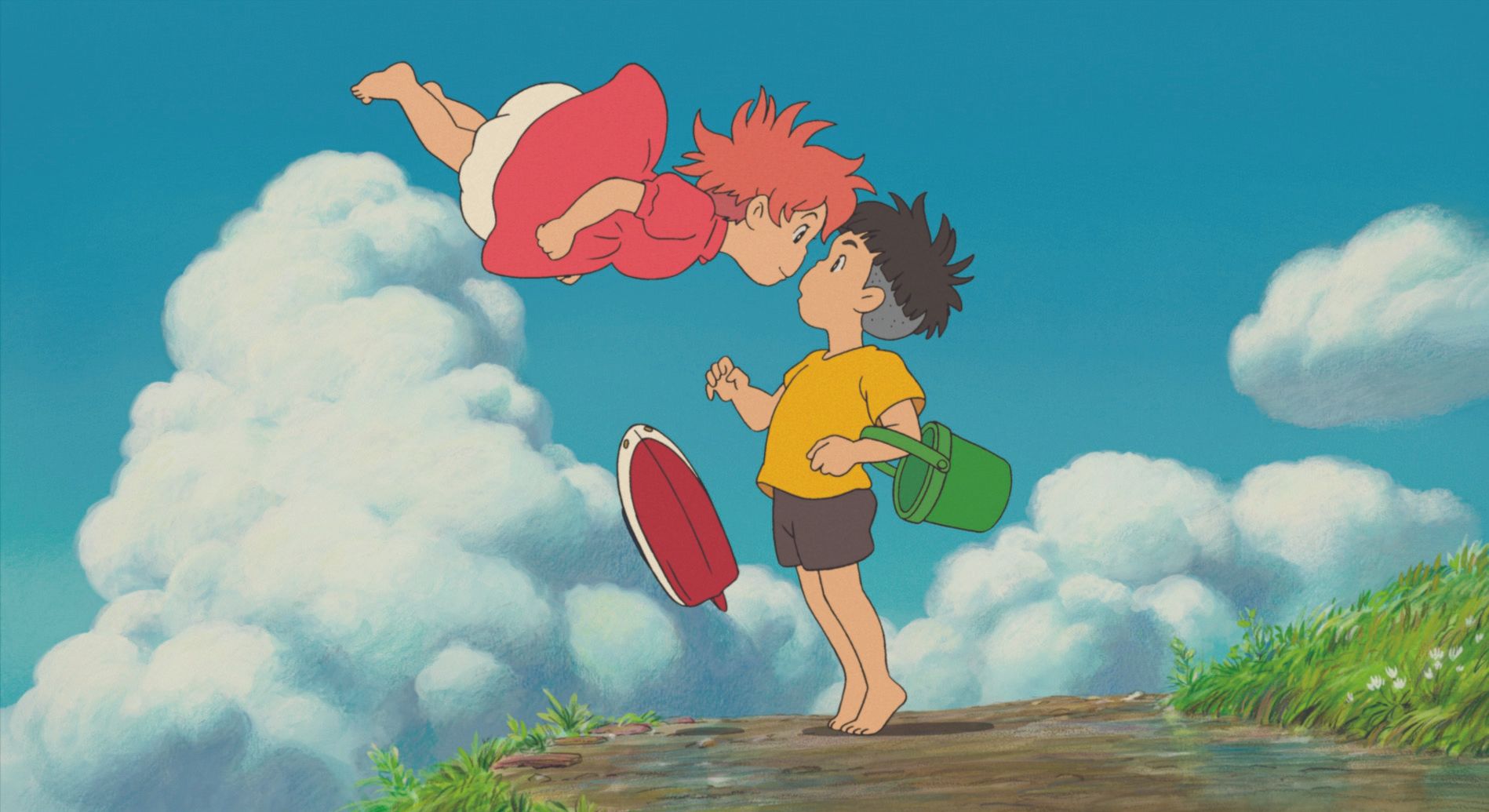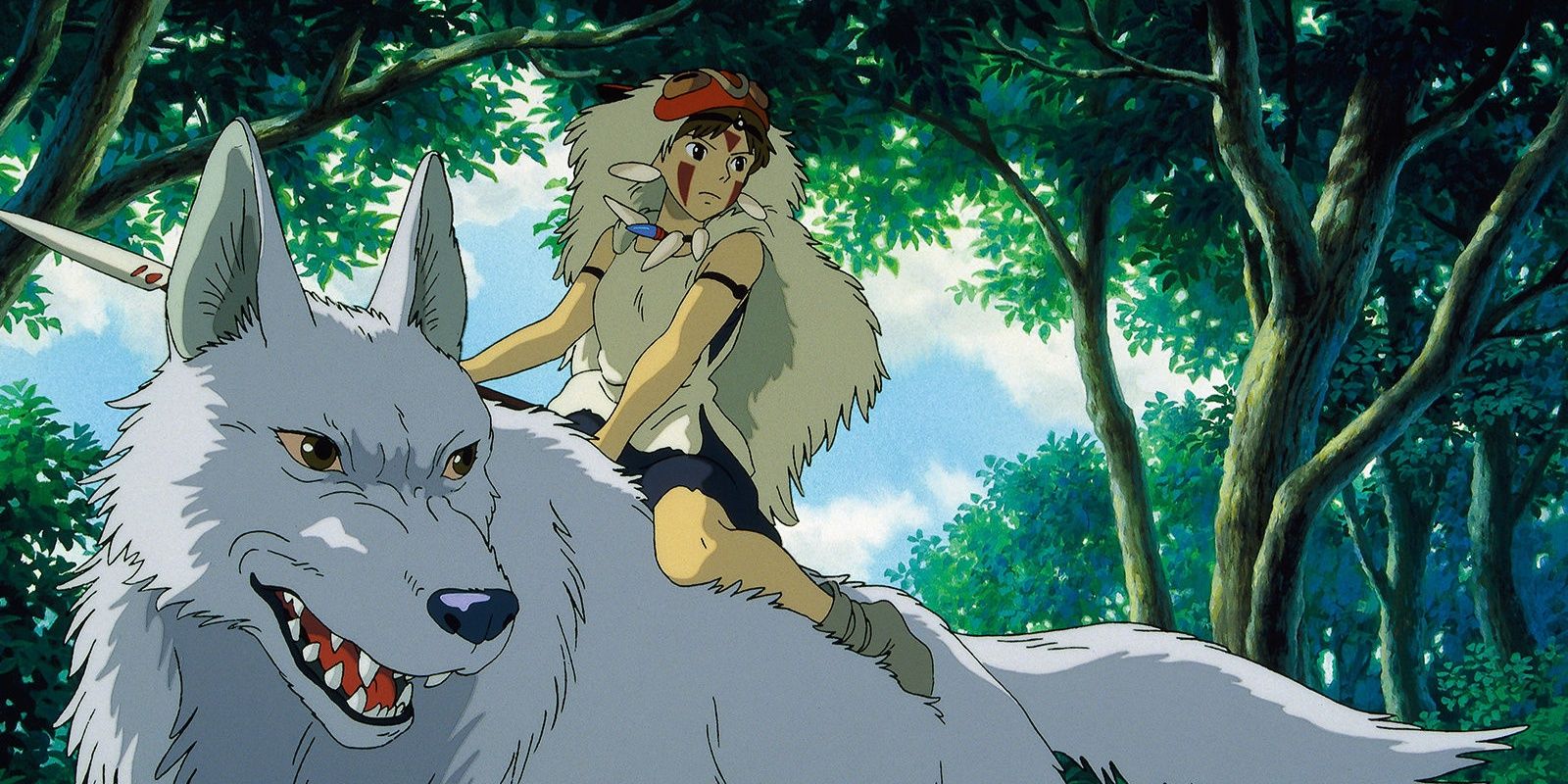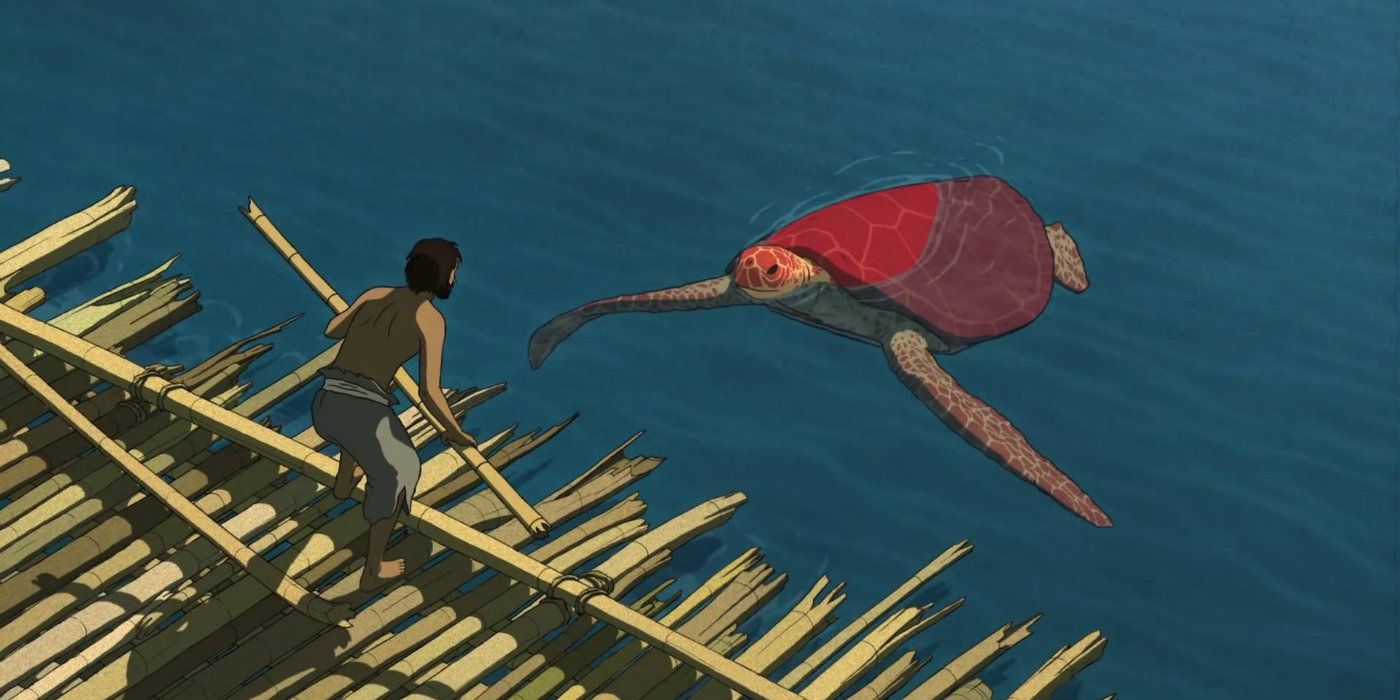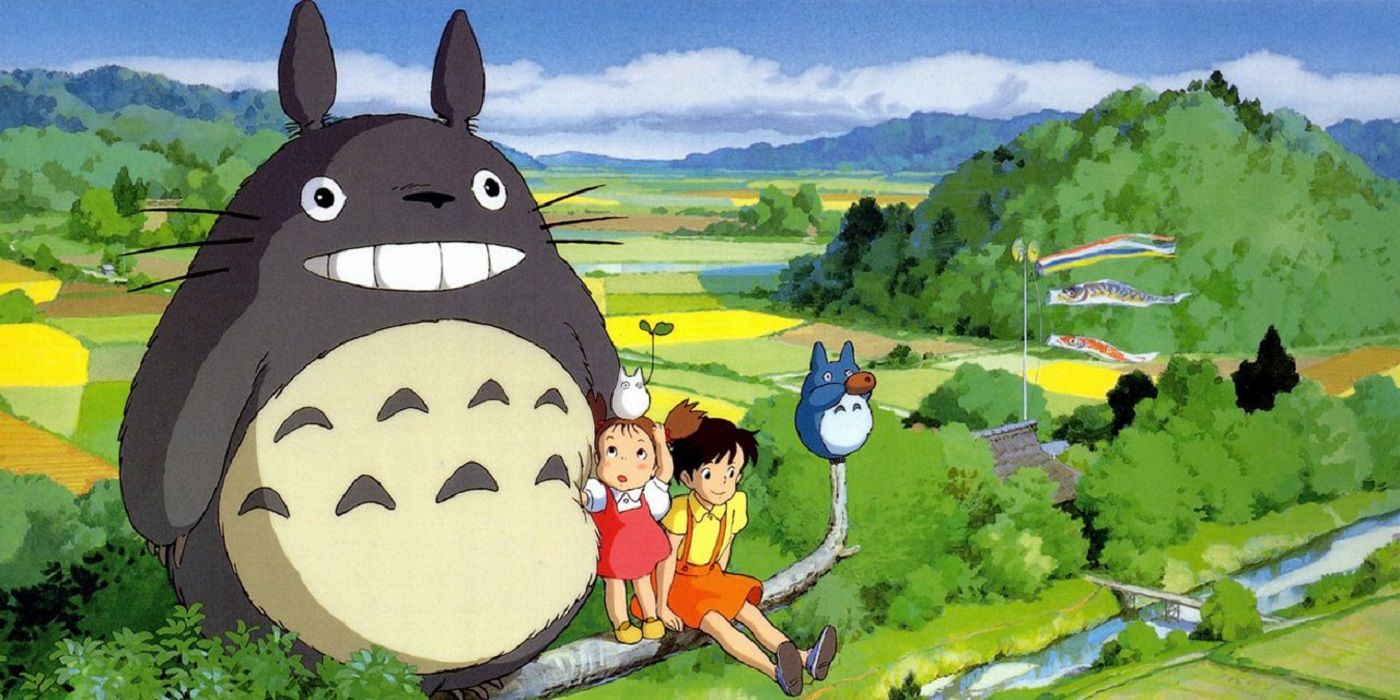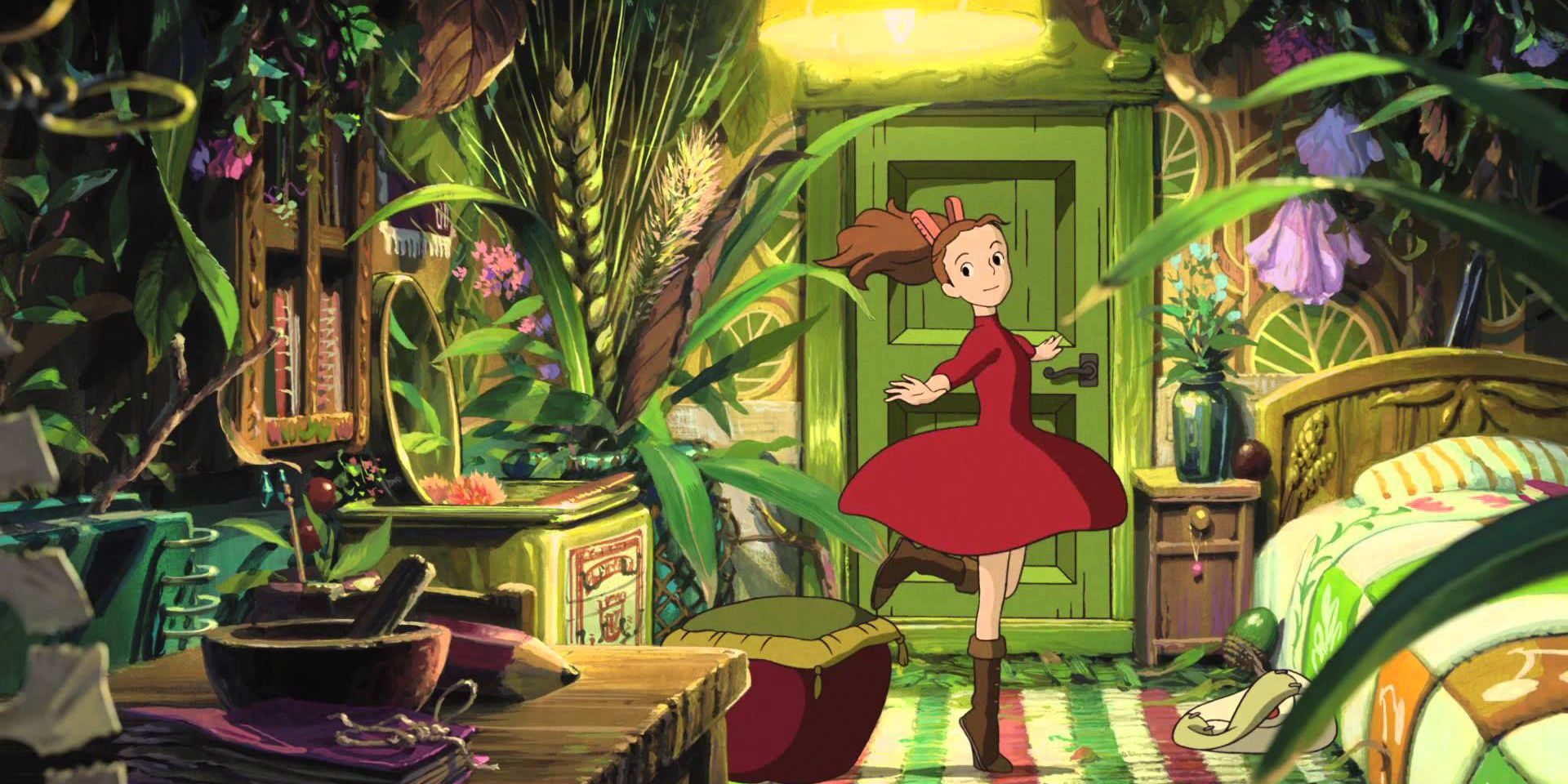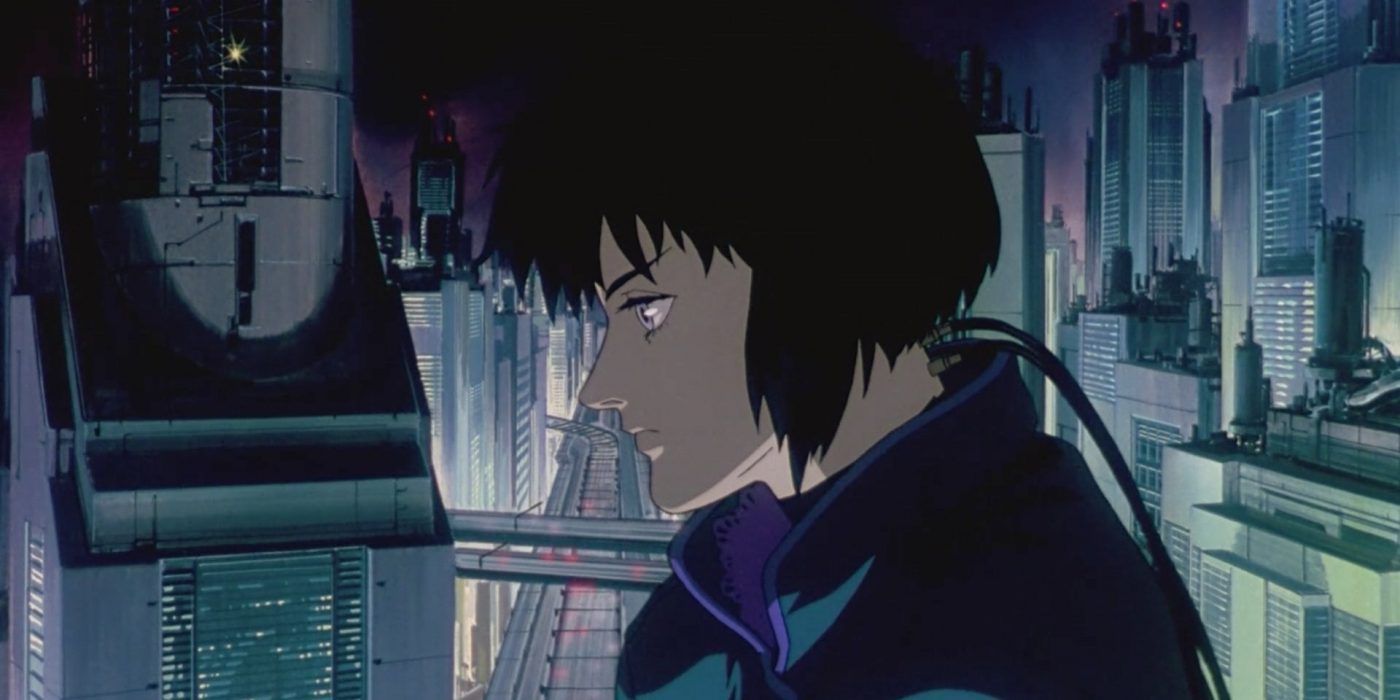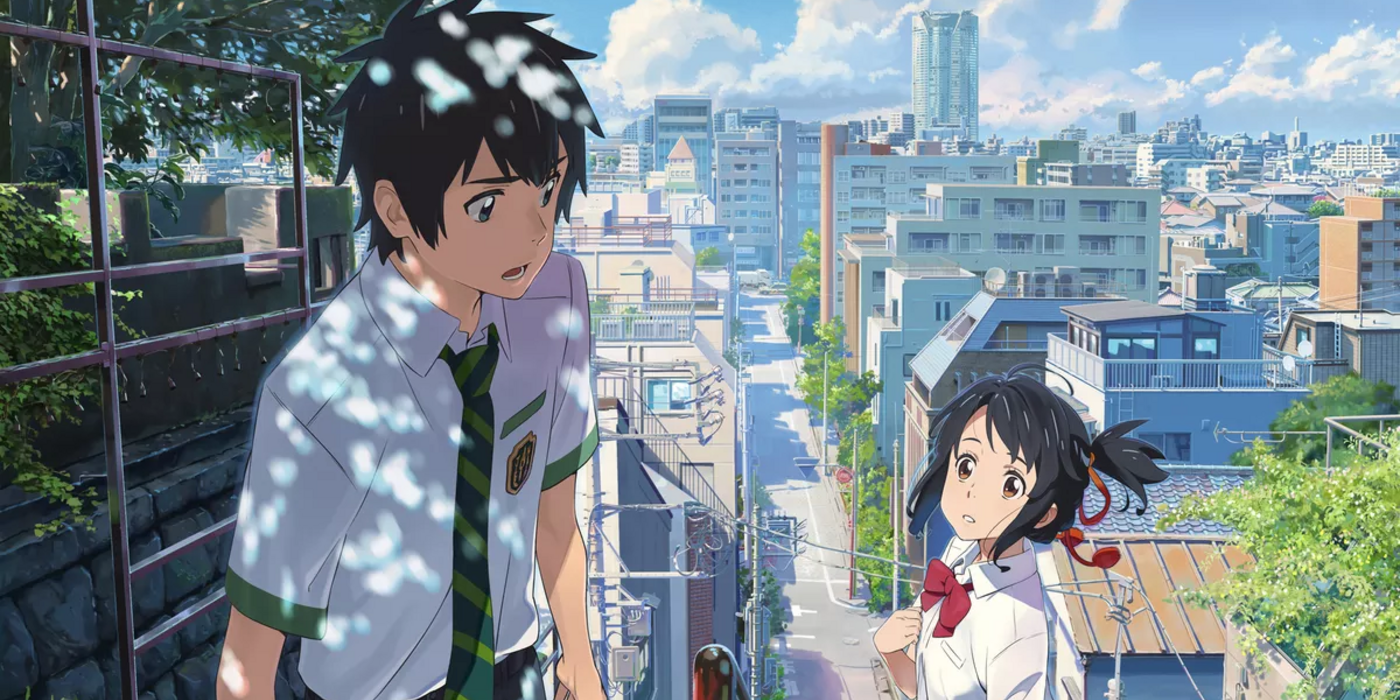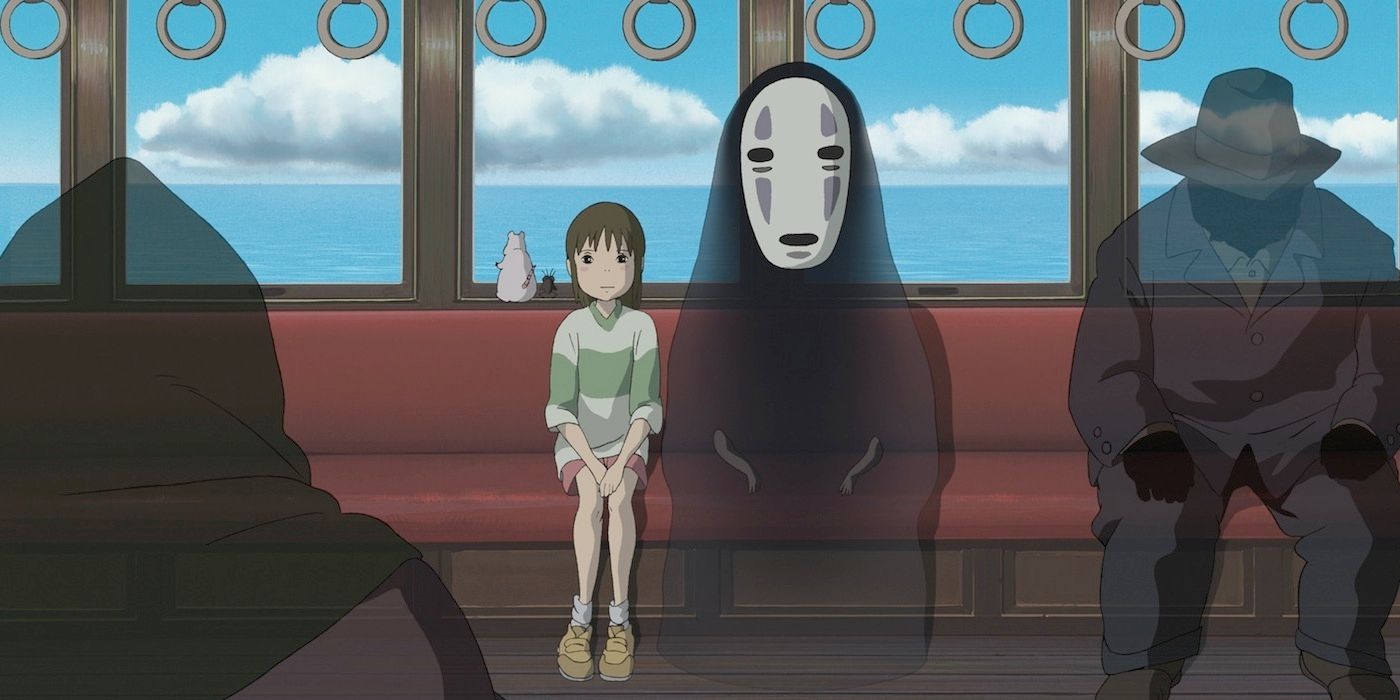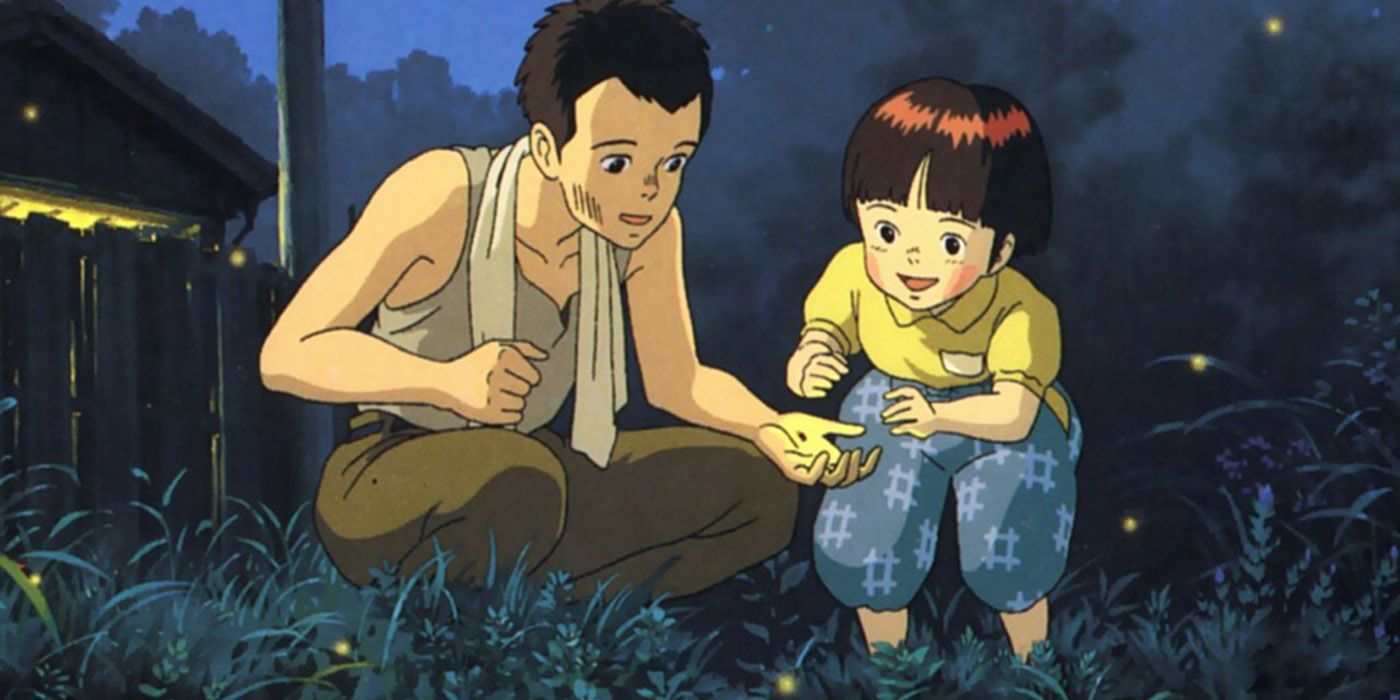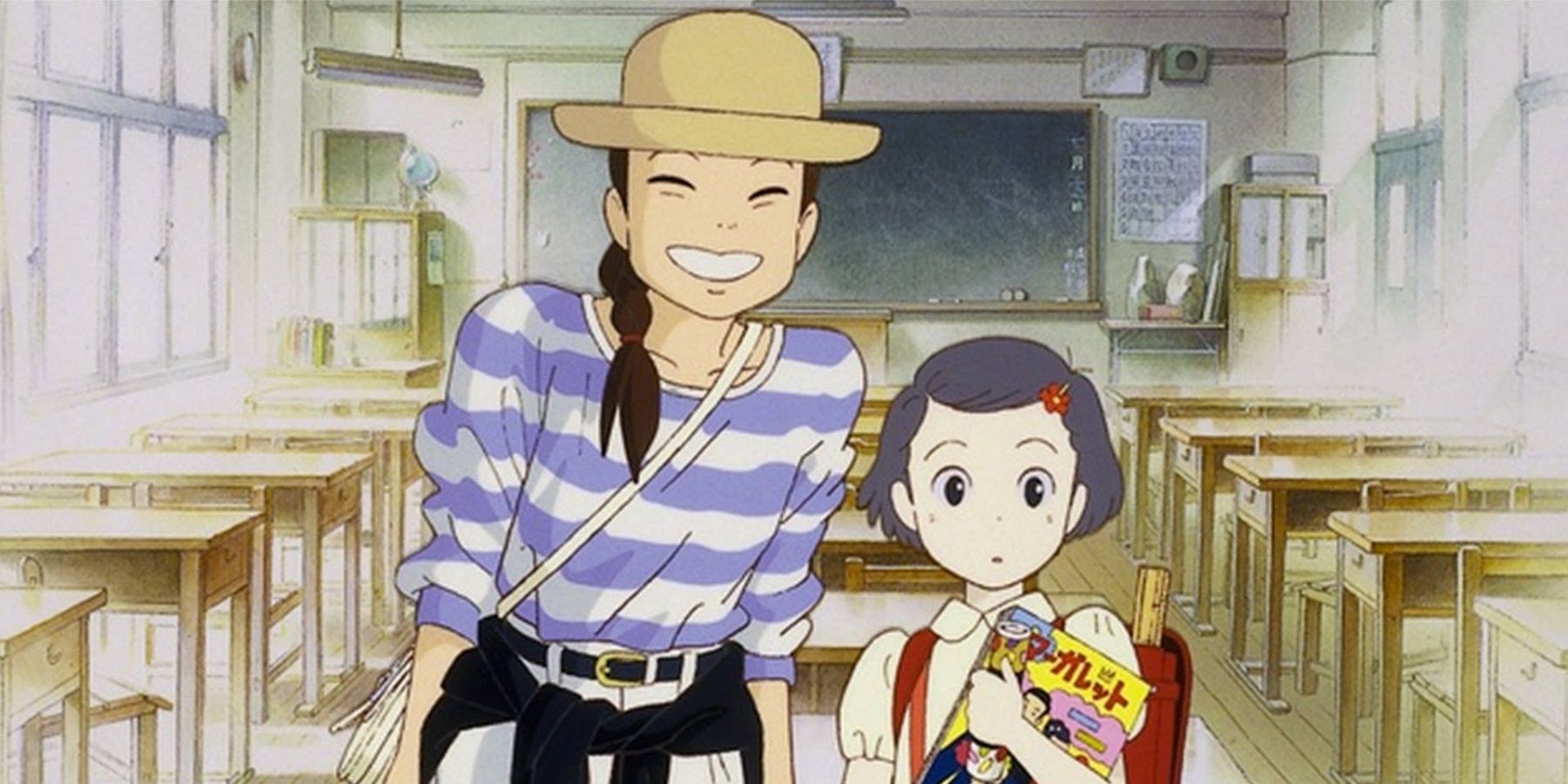Over the last twenty years, anime has extended from its Japanese roots and become a worldwide phenomenon. With streaming sites like Crunchyroll offering Western audiences an unprecedented level of access to the genre, an entire subculture has been formed based around the vibrant animation style.
Clearly, a definitive ranking system is needed to select the most worthwhile of the thousands of viewable anime films, for both the anime buff looking for the best selections and the newly christened otaku just starting to appreciate the established culture. While there are several perfectly viable sources for ranking various forms of media, we're going to be using the adjusted scoring system set up by Rotten Tomatoes to count down the top 10 anime films, ever.
Ponyo (2008) - 92%
The 2008 anime film Ponyo, animated by notoriously perfectionistic anime production company Studio Ghibli and directed by famed animator Hayao Miyazaki, is greatly inspired by various elements of the classic fairy tale The Little Mermaid. It follows Ponyo, a goldfish princess who longs to become human after meeting Sosuke, a land-dwelling five-year-old boy.
The film's somewhat unoriginal premise was said by critics to not seriously detract from its array of positive qualities, such as its breathtaking visuals and exuberant storytelling, which made it a critical and financial success. Pulitzer-Prize-winning film critic Roger Ebert praised the cinematic experience, calling it "magical" - and, in line with comments he had made as early as 2002, he described Miyazaki as "the greatest of all animators."
Princess Mononoke (1997) - 93%
Perhaps one of the earliest anime films to make a significant impact on Western audiences, Hayao Miyazaki's 1997 film Princess Mononoke, animated by Studio Ghibli, details the lives of San, a forest-dwelling warrior princess whose main objective is to protect the natural environment she calls home, and Ashitaka, a caring but not particularly heroic prince who calls for armistice between a group of forest deities and a clan of humans who consistently drain the forest's resources.
The film's environmentally-charged message, cutting-edge animation, and multiplex characters were the recipients of significant plaudits from both critics and audiences, and the film remains one of the most perfect examples in history of a well-executed animated epic - and one that requires no cuts.
The Red Turtle (2016) - 93%
Studio Ghibli expanded their already massive repertoire of critically successful films with this dialogue-less feature, which follows an island castaway whose attempts at escaping his predicament are consistently foiled by a giant turtle longing for companionship.
The film sends its viewers through a series of narrative twists and turns which it would be an unforgivable offense to divulge, but suffice to say it encases a profound and heartfelt message within its seemingly basic premise. Critics recognized this, and the wondrously animated film holds an impressive Rotten Tomatoes rating as well as the distinct achievement of receiving an Oscar nomination for Best Animated Feature.
My Neighbor Totoro (1988) - 94%
One of Hayao Miyazaki's earliest works (and, like many of the other examples offered in this listicle, a film produced and animated by Studio Ghibli), My Neighbor Totoro chronicles the adventures of two sisters, who, after moving with their university professor father to an old country house in order to be nearer to the hospital where their ailing mother resides, discover a world of playful sprites - most notably the helpful and friendly wood spirit Totoro.
As the siblings navigate life's challenges with childlike innocence, the film offers to its audience a sentimental, visually stimulating masterpiece on par with many of Ghibli's other creations.
The Secret World of (2010) - 95%
Based on the book The Borrowers, this 2010 Ghibli anime film follows a colony of miniature humans who live inside the walls of an otherwise nondescript household, going on missions to retrieve various necessities from the human residents. A young (and regular-sized) boy discovering the quasi-lilliputians and even befriending the teenaged Arrietty is the catalyst of a series of events that will affect the lives of everyone in the previously undiscovered commune.
While it's intended more for children than some of our previous entries, this film received critical acclaim for its combination of stunning animation, witty dialogue, and absorbing music. Reviewers argued that these elements set it apart from the norm in terms of quality.
Ghost in the Shell (1995) - 96%
When Ghost in the Shell was first released, it had an unprecedented level of creativity and artistic value not dissimilar to its printed predecessor. This made an instant hit. The film takes place in an expansive post-cyberpunk universe that focuses on several varying types of futuristic machinery, but none so much as the mac daddy of human achievement - the "cyberbrain", which, as its name would imply, is an artificial brain module with advanced computing capabilities.
These faux brains, unfortunately, are inherently hackable, and cybernetic security agent Motoko Kusanagi is tasked with hunting down the elusive cyber-criminals who use their hacking prowess to alter the perception and memories of their unwitting victims. Praised for its aesthetic qualities and depiction of futuristic culture, the film was an inspiration to several prolific filmmakers, most notably Matrix directors Lana and Lilly Wachowski who used the animated classic as inspiration for their own cyberpunk magnum opus.
Your Name (2016) - 97%
The box-office-record-breaking anime Your Name follows Mitsuha Miyamizu, a high-school girl who is displeased with her current rural lifestyle and wishes for a change, and Taki Tachibana, a high-school boy who lives in Tokyo and dreams of one day becoming an architect. The two, who have had no prior contact with each other, begin to experience strange and unexplained (albeit temporary) periods during which they switch bodies, helping them to form a connection and put themselves in each other's shoes
But when the swapping stops, they search for each other as if, through their experiences in each other's bodies, they discovered an untapped sense of meaning and purpose in the time spent living their previously void and futile lives. The film received critical acclaim for its emotional tone and thought-provoking theme of true human connection, earning a bevy of critical accolades and briefly becoming the world's highest-grossing anime film.
Spirited Away (2001) - 97%
Anime visionary Hayao Miyazaki makes his fourth appearance on this list with his heavily symbolic and infinitely fascinating 2001 Ghibli film Spirited Away. The film's straightforward premise of a girl forced to work at a resort for supernatural beings in order to free her parents, who have been transformed into pigs, masks a complicated fairy tale full of transformative, liminal worlds and majestic creatures.
These concepts were adored by both critics and filmgoers, leading to Spirited Away becoming the only anime film ever to win the Academy Award for Best Animated Feature. It was also voted the fourth best film of the entire twenty-first century in a poll of 177 film critics conducted by the BBC.
Grave of the Fireflies (1988) - 98%
The Studio Ghibli anime film Grave of the Fireflies, based on the heart-rending semi-autobiographical story of the same name, follows siblings Seita and Setsuko as they desperately fight malnutrition and various other calamities while living in Kobe, Japan during the Second World War.
The film's sorrowful tone and professional crafting both earned it heavy critical commendation, and although its hauntingly sad premise and conclusion leave an aching hole in the heart of the viewer, understanding the traumatic ordeals of the innocent is an important, yet horribly depressing, part of life.
Only Yesterday (1991) - 100%
Only Yesterday follows the career-driven Tokyo resident Taeko Okajima as she travels to her sister's rural hometown of Yamagata. Along the way, she remembers the dreams, ambitions, and experiences of her younger self through a series of flashbacks.
The film's ability to maintain an adult-oriented tone while being a clever and engaging film for children was one of its many bursts of narrative creativity. When mixed with the film's obvious artistic qualities, what resulted was a dazzling spectacle of filmmaking that did not go unnoticed by critics. While some may argue over which anime film is truly the best, the real winners here remain the intensely creative cineasts and animators at Studio Ghibli, the studio responsible for eight of this list's ten entries.

